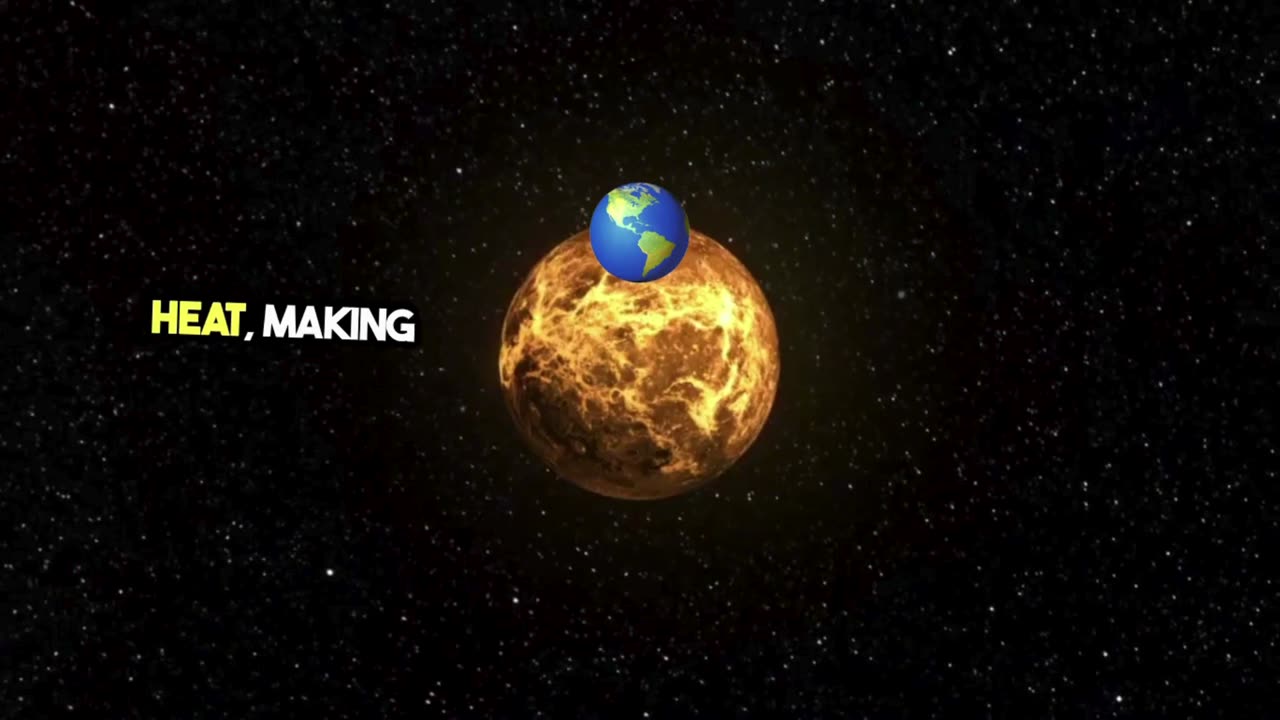Premium Only Content

Exploring Planet Venus!
Venus, the second planet from the Sun, is often referred to as Earth's sister planet due to their similar size and composition. Here are some key points about Venus:
Size and Composition: Venus is slightly smaller than Earth, with a diameter of about 12,104 kilometers (7,521 miles), making it the sixth-largest planet in the solar system. Its composition is primarily rocky, with a dense atmosphere primarily composed of carbon dioxide.
Atmosphere: Venus has an extremely thick atmosphere composed mainly of carbon dioxide, with clouds of sulfuric acid droplets. These clouds reflect sunlight very effectively, causing Venus to appear extremely bright in the sky.
Surface Features: The surface of Venus is rocky and heavily cratered, similar to the Moon, with large volcanic plains and towering volcanic mountains. One of the most prominent features is Maxwell Montes, the tallest mountain on Venus, which rises over 11 kilometers (6.8 miles) above the surrounding plains.
Extreme Conditions: Venus has one of the most hostile environments in the solar system. Surface temperatures can soar to over 450 degrees Celsius (over 840 degrees Fahrenheit), which is hotter than Mercury despite Venus being farther from the Sun. The atmospheric pressure on Venus is about 92 times that of Earth's, equivalent to the pressure experienced deep beneath the ocean on Earth.
Rotation and Orbit: Venus rotates very slowly on its axis, taking about 243 Earth days to complete one rotation, which is longer than its orbital period around the Sun (about 225 Earth days). Also, Venus rotates in the opposite direction to most other planets, a phenomenon called retrograde rotation.
Exploration: Venus has been visited by several spacecraft, including the Soviet Venera missions and NASA's Magellan spacecraft, which mapped the planet's surface with radar. These missions have provided valuable information about Venus' atmosphere, surface, and geology.
Potential for Life: Despite its harsh surface conditions, scientists have speculated about the possibility of microbial life existing in the upper layers of Venus' atmosphere, where temperatures and pressures are more moderate.
Overall, Venus presents a fascinating yet challenging environment for exploration and study, offering insights into the processes that shape rocky planets in our solar system.
-
 3:23:12
3:23:12
I_Came_With_Fire_Podcast
16 hours agoSHALL NOT BE INFRINGED| THE TYRANNY OF UNELECTED BUREAUCRATS | XI BOWS
42.4K8 -
 4:19:36
4:19:36
SynthTrax & DJ Cheezus Livestreams
17 hours agoFriday Night Synthwave 80s 90s Electronica and more DJ MIX Livestream THE GREAT EDO WARS OF 2067 Edition
72.7K10 -
 4:45:15
4:45:15
RalliedLIVE
8 hours ago $1.73 earnedWarzone Domination w/ Ral
52.2K -
 1:10:17
1:10:17
Sarah Westall
9 hours agoWorld Leaders Increasingly Display Panic Behavior as Economic Change Accelerates w/ Andy Schectman
79K15 -
 59:54
59:54
Motherland Casino
7 hours ago $1.81 earnedScar x Ayanna
31.9K5 -
 41:57
41:57
BonginoReport
12 hours agoProtecting Kids From WOKE Ideology in School (Ep. 35) - Nightly Scroll with Hayley Caronia -04/25/25
121K50 -
 LIVE
LIVE
SpartakusLIVE
9 hours agoFriday Night HYPE w/ #1 All-American Solo NUKE Hero
139 watching -
 1:15:07
1:15:07
Kim Iversen
1 day agoThe Left Is Dead — What And Who Will Rise From the Ashes?
105K100 -
 2:06:17
2:06:17
Joker Effect
7 hours agoYOU DON'T UNDERSTAND FREEDOM OF SPEECH IF THIS MAKES YOU MAD!
15.4K1 -
 1:45:26
1:45:26
vivafrei
13 hours agoSantos Sentenced to 87 MONTHS! Corrupt Judges ARRESTED! Some Canada Stuff & MORE!
145K102